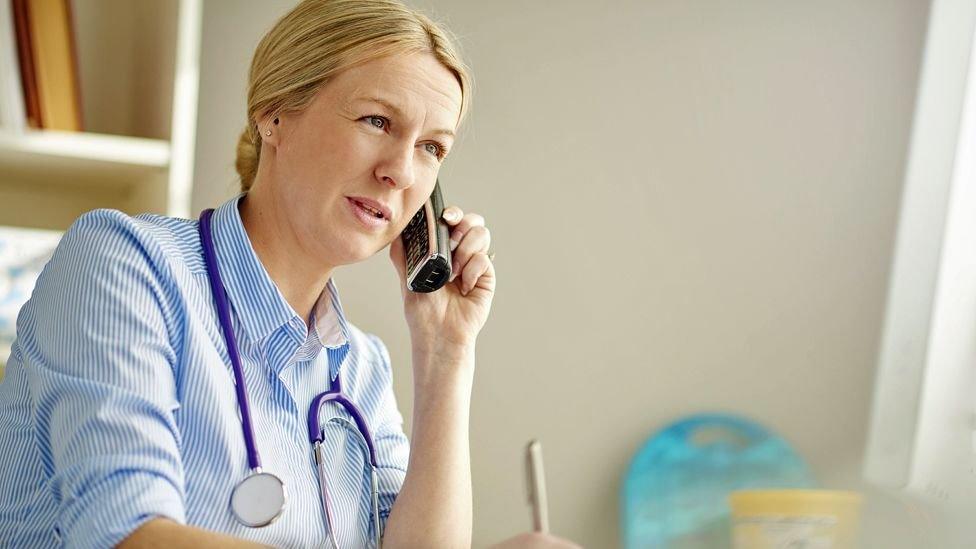Bedford: 'There is no way GPs can cope with the demand'
- Published
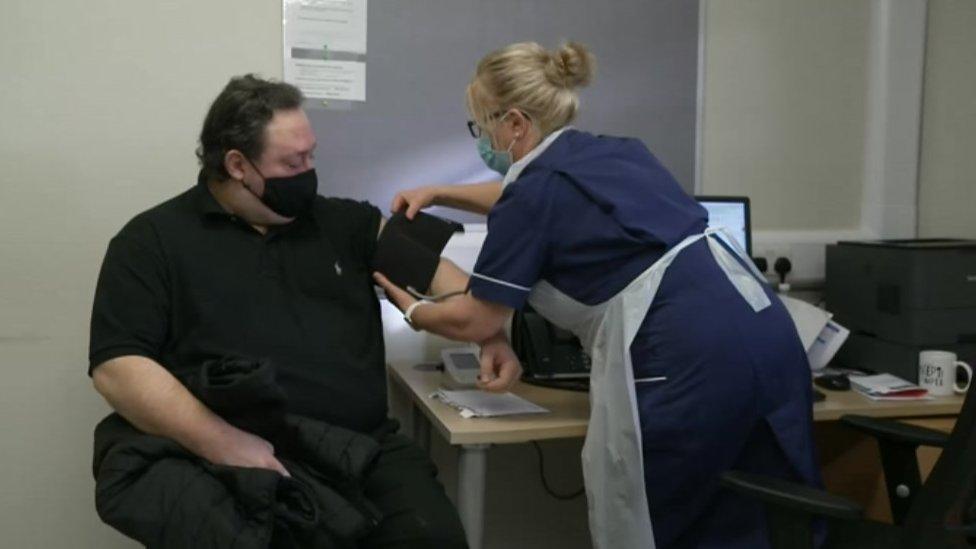
GP surgeries are facing higher demand and a shortage of doctors
GP surgeries are under mounting pressure, with many facing a backlog of cases due to the pandemic and demand for both flu vaccinations and coronavirus booster jabs. One surgery in Bedford is using other health professionals to ease the burden on doctors, but is it making a difference?

'We just can't go on like this'
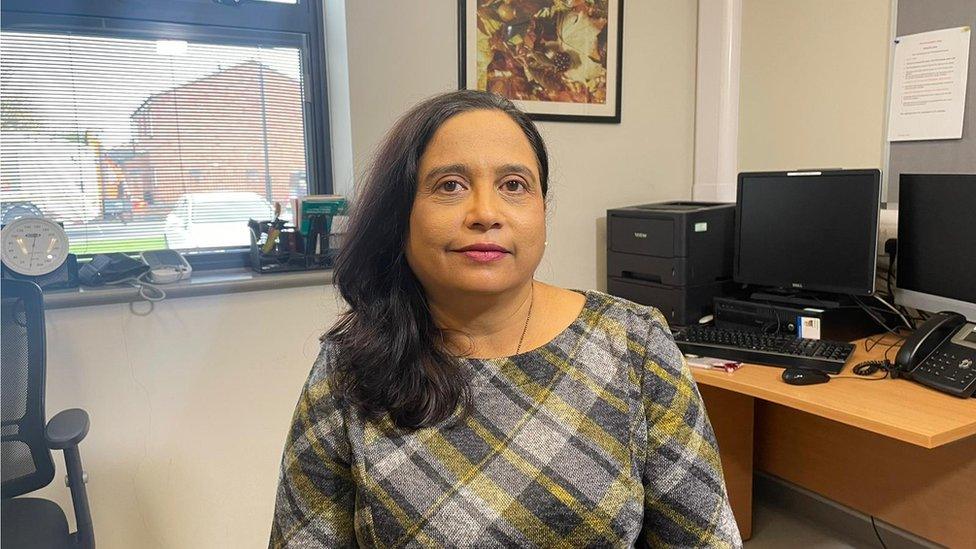
GP Dr Vinita Manjure says the staff at the surgery have supported each through the increased demand
Dr Vinita Manjure is a GP and partner at the De Parys Group, which runs several surgeries around Bedford.
She says the current situation is very difficult and is testing their resilience.
"It's relentless, the demand. If something doesn't change and change soon it will soon be unsustainable," she says.
Dr Manjure says the practice had 27,000 phone calls in August 2019, compared to almost 45,000 in August this year.
"There is no way we can cope with that kind of demand," she says.
She says the pressure is affecting her quality of life, and that of her colleagues. "We just can't go on like this," she adds.
She says the number of GPs in England needs to increase but there are other professionals who can provide a high level of care.
"I think that's the future," she says.

'I do what GPs don't have time to'
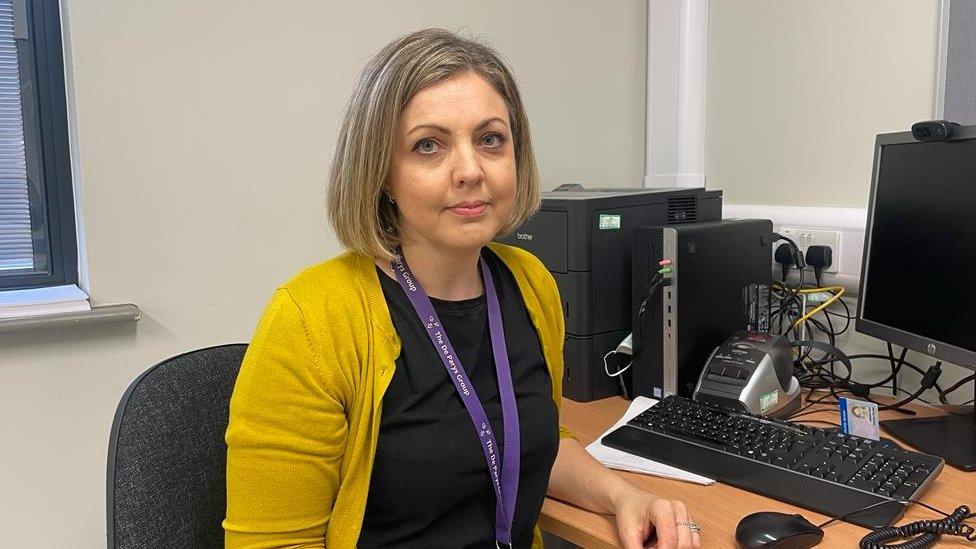
Pharmacist Gemma Davies says her workload has increased partly due to a rise in people in care homes needing medication
Gemma Davies, the senior clinical pharmacist at the Bedford surgery, says her role has grown in the last three years.
She says: "I carry out a detailed medication review with people, which can take up to an hour, to see whether [their medications] are causing them any problems, any side effects.
"Quite a lot of the time we can stop medications or switch them to alternatives which are better for them."
She says her job is to try and prevent people going to hospital because of medication errors, and she helps to improve their quality of life.
"Pharmacists are experts in medications and a lot of hospital admissions are down to problems with patients taking medication, so if we can do a thorough medication review, which GPs don't have time to do, this will be really beneficial for patients," she says.
Ms Davies says she sees mostly frail and elderly patients "generally on 10 or more medications".
Through her work, the GPs are seeing less queries coming through, she says.

'The team are tired'
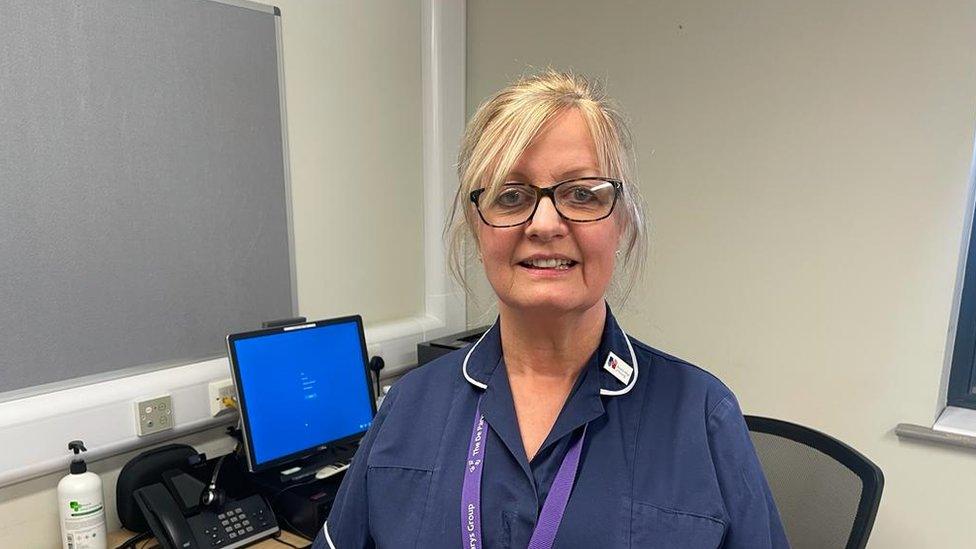
Practice nurse Tracy Worrall says her team can cover 230 appointments in a week for people with long term conditions
"We are incredibly busy," says Tracy Worrall, the practice nurse lead whose team covers procedures such as vaccinations, dressings, injections, and blood pressure monitoring.
"Post-Covid we have got patients that are very anxious and they need extra support.
"People who have been at home for such a long time and they've not necessarily been out so their blood pressure has not been very good, they've not been able to exercise, people have more problems with leg ulcers and dressings," she says.
They also offer telephone appointments, monitor care homes and run clinics for sexual health.
The team has vacancies for two full-time nurses, a part-time nurse and a health care assistant.
"The team are tired and some days the morale is quite low, their appointment time is shortened. It is a brilliant team but we are also short of staff and it's been really hard to recruit nurses," she says.

'People are happy to see a clinician'
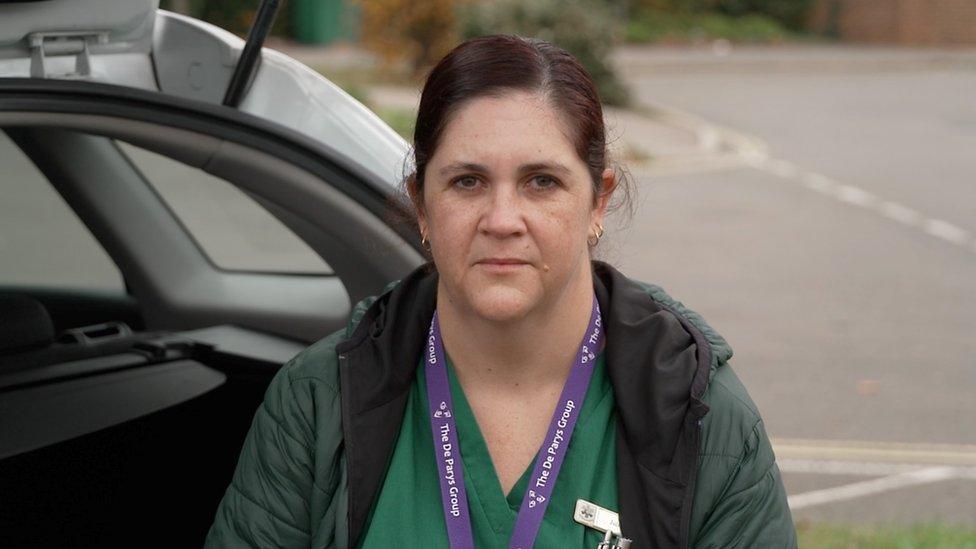
Julie Hall says she sees a broad spectrum of patients as a paramedic for the GP practice
Paramedic Julie Hall describes herself as a "new entity" for GP surgeries.
She carries out home visits and takes appointments over the phone to "allocate the appropriate clinician to see the patients".
"I have a slightly different set of skills, and know how best to keep patients out of hospital," she says.
Patients don't need always need to go into hospital, she says, and she tries to manage them at home.
"I have the best of both worlds, I understand what's required from a primary healthcare and from an acute medicine perspective."
She says the response from patients has been good, with people already used to seeing paramedics.
"I think people will be seeing more paramedics in primary healthcare and people are just happy to see a clinician," she adds.

Find BBC News: East of England on Facebook, external, Instagram, external and Twitter, external. If you have a story suggestion email eastofenglandnews@bbc.co.uk, external
- Published14 September 2021
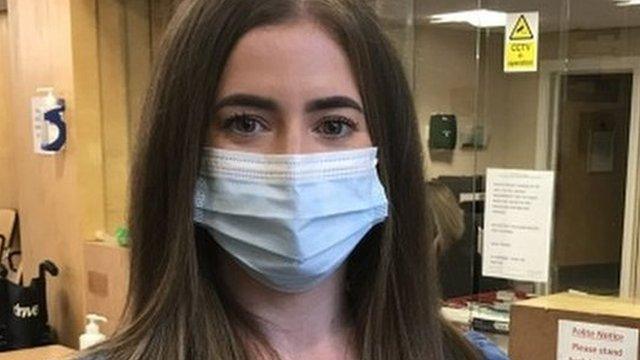
- Published17 September 2021
